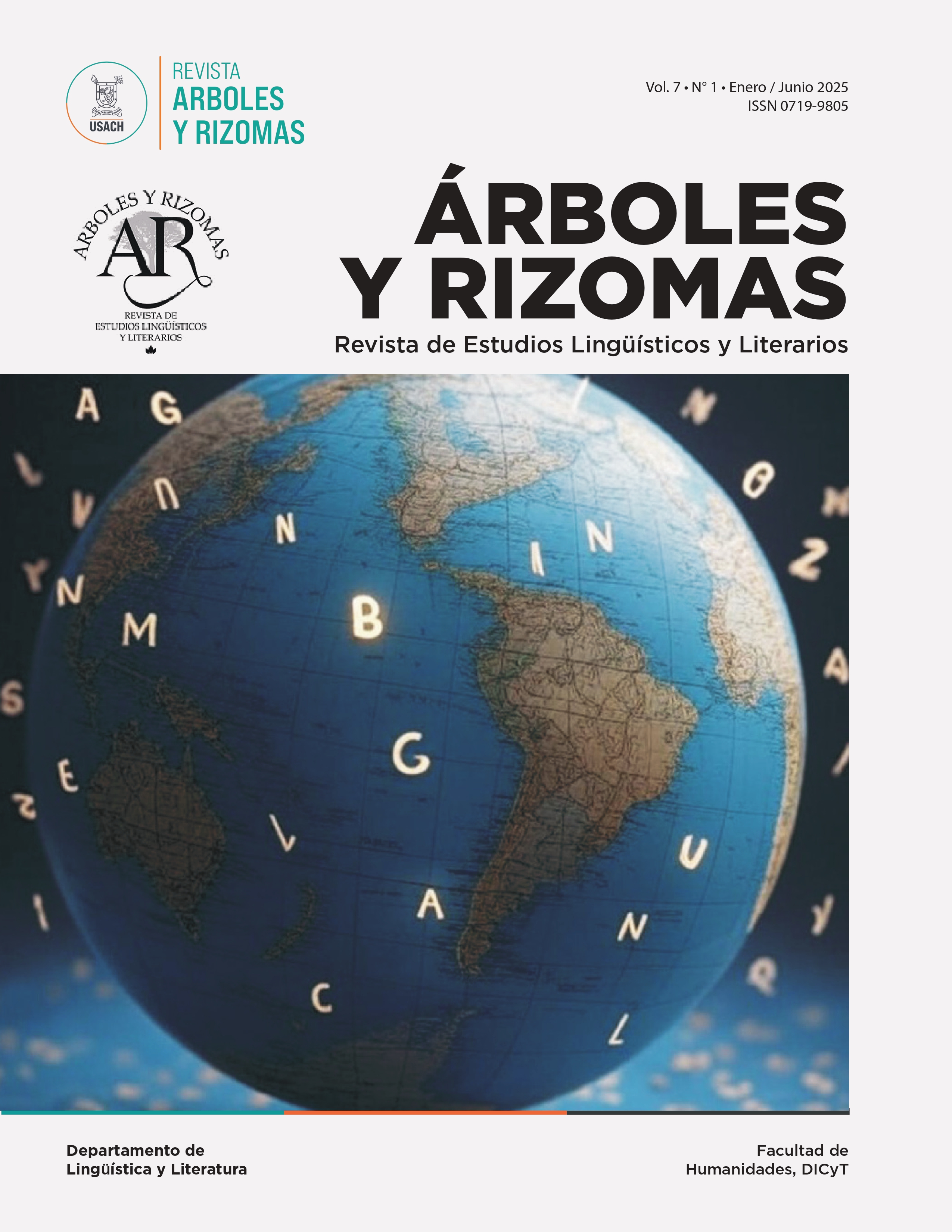(Post)Memory and identity construction in two contemporary Brazilian novels about the dictatorship
DOI:
https://doi.org/10.35588/ayr.v7i1.7152Keywords:
dictatorship, (post)memory, identity, time, contemporary Brazilian novelAbstract
This article examines various constructions of memory and the formation of both personal and national identity in contemporary Brazilian novels about the dictatorship. Situated within the broader context of renewed critical and aesthetic perspectives on the Brazilian dictatorship since 2014, this study analyzes Ainda estou aqui by Marcelo Rubens Paiva (2015) and A resistência by Julián Fuks (2015). It explores the complexities of reconstructing both historical and personal memory, as well as the impact of a traumatic past on contemporary identity. Accordingly, the article proposes a comparative reading that integrates and discusses key concepts relevant to this critical perspective, such as memory (Jelin, 2002), postmemory (Hirsch, 2012), and the anti-monument (Seligmann-Silva, 2003). It analyzes the literary devices and strategies employed in these novels —particularly by questioning the discourse of memory itself and reconstructing identity through the search for an understanding of the other— in order to shape a memory that is both personal and subjective, as well as national and historical.
Downloads
References
Agamben, G. (2002). Lo que queda de Auschwitz. El archivo y el testigo: Homo Sacer III. Pretextos.
Brandão, I. (2019). Zero. Global Editora.
Da Cruz, L. G. (2022). Uma espectrografia do autoritarismo: o tempo da ditadura na literatura do século XXI. Revista Escritas do Tempo, 12, 262-282.
Fernandes, P. (2019). Poéticas da migrância e ditadura: exílio e diáspora nas obras de Julián Fuks e Francisco Maciel. Revista Estudos de Literatura Brasileira Contemporânea, 58, 1-12.
Fuks, J. (2011). Procura do romance. Record.
Fuks, J. (2015). A resistência. Companhia das Letras.
Gabeira, F. (1979). O que é isso companheiro?. Estação Brasil.
Heinenberg, I. (2020). Exílio da ditadura na ficção brasileira da geração pós-memorial: a perspectiva e a estética dos filhos. Revista Estudos de Literatura Brasileira Contemporânea, 60, 1-12.
Hirsch, M. (2012). The Generation of Postmemory: Writing and Visual Culture after the Holocaust. Columbia University Press.
Jelin, E. (2002). Los trabajos de la memoria. Siglo XXI.
Paiva, M. R. (2015). Feliz ano velho e Ainda estou aqui. Objetiva.
Ricœur, P. (1999). La lectura del tiempo pasado: memoria y olvido. Arrecife-Universidad Autónoma de Madrid.
Ruan de Sousa, G. (2017). Julián Fuks: Quero uma literatura ocupada pela política. Época. https://epoca.globo.com/cultura/noticia/2017/07/julian-fuks-quero-uma-literatura-ocupada-pela-politica.html
Santiago, S. (1994). Em liberdade. Rocco.
Santos Guidio, M. (2018). O direito à “outra” memória – sobre Ainda estou aqui, de Marcelo Rubens Paiva. Gragoatá, 23(45), 172-189.
Sarlo, B. (2006). Tiempo Pasado: Cultura de la Memoria y Giro Subjetivo: Una discusión. Siglo XXI.
Seligmann-Silva, M. (2003). História, memória, literatura: o testemunho na era das catástrofes. Editora Unicamp.
Seligmann-Silva, M. (2016). Antimonumentos: trabalho de memória e de resistência. Revista Psicologia USP, 27(1), 49-60.
Süssekind, F. (1984). Tal Brasil, Qual Romance? Uma ideologia estética e sua história: naturalismo. Achiamé.
Vecchi, R. (2021). A crise da pós-memória e o horizonte das sobrevivências: campos de batalha da memória no Brasil contemporâneo. Revista Estudos de Literatura Brasileira Contemporânea, 64, 1-11.
Downloads
Submitted
2025-02-12Published
Issue
Section
License
Copyright (c) 2025 Matias Rebolledo Dujisin

This work is licensed under a Creative Commons Attribution 4.0 International License.






